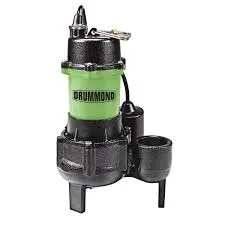Khmer
- Afrikaans
- Albanian
- Amharic
- Arabic
- Armenian
- Azerbaijani
- Basque
- Belarusian
- Bengali
- Bosnian
- Bulgarian
- Catalan
- Cebuano
- Corsican
- Croatian
- Czech
- Danish
- Dutch
- English
- Esperanto
- Estonian
- Finnish
- French
- Frisian
- Galician
- Georgian
- German
- Greek
- Gujarati
- Haitian Creole
- hausa
- hawaiian
- Hebrew
- Hindi
- Miao
- Hungarian
- Icelandic
- igbo
- Indonesian
- irish
- Italian
- Japanese
- Javanese
- Kannada
- kazakh
- Khmer
- Rwandese
- Korean
- Kurdish
- Kyrgyz
- Lao
- Latin
- Latvian
- Lithuanian
- Luxembourgish
- Macedonian
- Malgashi
- Malay
- Malayalam
- Maltese
- Maori
- Marathi
- Mongolian
- Myanmar
- Nepali
- Norwegian
- Norwegian
- Occitan
- Pashto
- Persian
- Polish
- Portuguese
- Punjabi
- Romanian
- Russian
- Samoan
- Scottish Gaelic
- Serbian
- Sesotho
- Shona
- Sindhi
- Sinhala
- Slovak
- Slovenian
- Somali
- Spanish
- Sundanese
- Swahili
- Swedish
- Tagalog
- Tajik
- Tamil
- Tatar
- Telugu
- Thai
- Turkish
- Turkmen
- Ukrainian
- Urdu
- Uighur
- Uzbek
- Vietnamese
- Welsh
- Bantu
- Yiddish
- Yoruba
- Zulu
Telephone: +86 13120555503
Email: frank@cypump.com
តុលា . 31, 2024 23:51 Back to list
Understanding the Function and Benefits of Sewage Injector Pumps for Efficient Waste Management
Understanding Sewage Injector Pumps A Comprehensive Overview
Sewage injector pumps play a crucial role in the efficient management of wastewater systems, especially in residential and commercial settings lacking adequate gravity drainage. These pumps are specifically designed to transport sewage and wastewater from lower lying areas to higher elevations, ensuring that it reaches treatment facilities or sewer lines effectively.
What Is a Sewage Injector Pump?
A sewage injector pump, often referred to as a sewage ejector pump, is an essential component of many wastewater systems. These pumps are used to move sewage away from premises that are below the level of the municipal sewer line or outflow disposal point. They work by utilizing a mechanical device that creates a strong pressure to propel waste materials out of the collection basin and into the main sewer line.
How Does It Work?
The operation of a sewage injector pump involves several key components the pump itself, a float switch, and a control panel. When wastewater collects in a basin or sump, the float switch activates the pump once the water level rises to a predetermined point. The pump then engages to move the sewage through a discharge pipe, overcoming gravity to lift the waste to a higher elevation where it can be transported to the municipal sewage system. Once the water level in the basin falls to a lower point, the float switch deactivates the pump, conserving energy and preventing unnecessary wear.
Applications of Sewage Injector Pumps
Sewage injector pumps are commonly found in various applications
1. Residential Settings Particularly in homes with basements or in areas with low topography, sewage injector pumps are vital for directing wastewater to the main sewer system or septic tanks.
2. Commercial Use Restaurants, shopping centers, and other commercial establishments with multiple restrooms often rely on these pumps to handle significant volumes of wastewater generated.
sewage injector pump

4. Industrial Applications Many industries require robust sewage systems to manage heavy waste loads efficiently, making sewage injector pumps a key part of their infrastructure.
Advantages of Sewage Injector Pumps
There are several advantages to using sewage injector pumps
- Efficient Waste Management They facilitate the effective removal and transport of sewage from lower areas to higher elevations, preventing potential backups and overflows.
- Energy Efficiency Modern sewage pumps are designed to be energy-efficient, helping to reduce operational costs over time.
- Compact Design Many sewage injector pumps are designed to occupy minimal space, making them suitable for installations in tight areas.
- Durability and Reliability High-quality pumps can withstand corrosive environments and heavy usage, ensuring long-term dependability.
Maintenance and Care
Regular maintenance is essential to ensure the longevity and efficiency of sewage injector pumps. This includes periodic inspections, checking the float switch for proper operation, and cleaning the pump to prevent clogs. Homeowners and facility managers should also keep an eye on warning signs such as unusual noises or frequent cycling, which may indicate underlying issues.
Conclusion
In summary, sewage injector pumps serve as a vital solution for effective wastewater management in various settings. Understanding their function and benefits not only aids in selecting the right system for specific needs but also highlights the importance of regular maintenance to ensure smooth operation. As technology advances, the efficiency and reliability of these pumps continue to improve, making them an invaluable asset in modern sewage management systems.
-
Horizontal Split Case Pump with GPT-4 Turbo | High Efficiency
NewsAug.01,2025
-
ISG Series Pipeline Pump - Chi Yuan Pumps | High Efficiency, Durable Design
NewsAug.01,2025
-
Advanced Flue Gas Desulfurization Pump with GPT-4 Turbo | Durable & Efficient
NewsJul.31,2025
-
ISG Series Vertical Pipeline Pump - Chi Yuan Pumps | Advanced Hydraulic Design&Durable Construction
NewsJul.31,2025
-
ISG Series Vertical Pipeline Pump - Chi Yuan Pumps | Energy Efficient & Low Noise
NewsJul.31,2025
-
pipeline pump - Chi Yuan Pumps Co., LTD.|High Efficiency&Low Noise
NewsJul.31,2025










